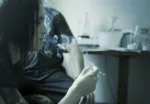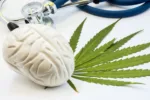Recognizing the Signs of Substance Addiction

If you have a loved one who you suspect could be abusing drugs or alcohol, it often comes as a shock. In some cases, even those closest to us can be caught up in self-destructive behavior without us noticing.
While the realization that a loved one is struggling with substance use is never an easy thing to stomach, it’s important to accept the reality of the situation when warning signs become apparent. If you are suspicious that a friend or family member is involved in substance use, having a list of identifiable warning signs to consult can help you discern whether drug or alcohol addiction is at play.
Use this guide to assist you in distinguishing physical signs of substance abuse, behavioral signs of addiction and signs specific to drug or alcohol use.
Physical signs of substance abuse
Recognizing the physical signs of substance abuse is extremely helpful because while the behavior is sometimes subjective to personality and situation, the physical manifestations of addiction can be objectively noticed. Often, those who struggle with substance use will tend to hide or downplay their symptoms, so physical signs are helpful to look for.
These signs may be easier to detect in someone you don’t know as personally or see as often, and while some of them may have other potential causes, noticing a few of them is a red flag for addiction.
Here are the most common physical signs of substance abuse:
- Red or bloodshot eyes
- Enlarged or shrunken pupils
- Changes in appetite
- Significant weight loss or gain
- Changes in sleep (insomnia or hypersomnia)
- Runny nose
- Sniffling
- Cold-like symptoms
- Shaking or trembling hands
- Slurred speech
- Slow reaction time
- Poor coordination
- Poor concentration
- Strange odors on body or breath
- Neglected appearance and personal hygiene
- Low energy
- Fatigue
You may also notice drug paraphernalia or hoarded drugs or alcohol. If you’re unsure whether suspicious physical symptoms are due to substance use, keep track of the signs you notice for two weeks, then confront your loved one with your concerns.
Behavioral signs of addiction
While physical signs are helpful to spot because they are objective criteria, they can also be hidden or excuses in many cases. Behavioral signs of addiction, on the other hand, tend to be observed more intuitively by loved ones. When an addiction takes hold, a person’s brain chemistry is altered, making it impossible to resist the impact on one’s actions.
Look out for the following behavioral signs of addiction, especially in combination with the physical symptoms mentioned above:
- Difficulty maintaining relationships
- Missing commitments
- Changes in social groups
- Self-isolation
- Acting secretive or suspicious
- Neglecting responsibilities (such as family or work)
- Legal issues (such as DUI or DWI)
- Fighting, accidents or injuries
- Sudden changes in hobbies and activities (such as abruptly giving up exercise)
- Financial issues
- Needing to borrow or steal money
- Struggling to control thoughts about drugs or alcohol
- Trying to stop using and being unable to
- Increased tolerance (needing more and more of the substance to feel the same effects)
- Using the substance to relieve withdrawal symptoms
- Irritability
- Poor decision making
- Restlessness
- Continuing to use the drugs despite pushback from family, friends, coworkers, etc
- Extreme mood swings
- Anxiety
- Depression
- Increased anger
- Unexplained personality changes
Someone who faces an addiction may not even notice behavioral changes until they are pointed out by loved ones. These changes are best identified by someone who knows the person well.
Drug addiction signs
There are some drug addiction signs that may not be observed when someone has an alcohol use disorder. The following signs are more common for those who struggle with drug use via inhalation, injection or smoking:
- Changes in perception (including taste, sight)
- Paranoia
- Yellow fingertips (could indicate marijuana use)
- Cravings for food
- Ongoing cough
- Frequent lung infections
- Hallucinations
- Involuntary eye movements
- Mouth sores
- Gum disease
- Tooth decay from smoking some drugs
- Muscle cramping
- Slowed breathing
- Rashes
- Bruises around injection sites
- Track marks
- Decreased blood pressure
- Increased aggression or violent behavior
Some of these signs could be due to alcohol use, but they are more commonly observed when drugs are in the picture. It may be possible that your loved one is consuming drugs and alcohol simultaneously, too.
Alcohol addiction signs
Alcohol addiction can be difficult to differentiate from casual and recreational drinking. Look for these signs to determine if alcohol use has escalated and is causing problems:
- Decreased social inhibition
- Clumsiness
- Drowsiness
- Increased falls or accidents
- Vomiting
- Memory issues
- Rambling speech
- Changes in body temperature
- Weight gain due to the high caloric content of some alcohol
- Poor judgment
If someone is struggling with excessive drinking or an alcohol use disorder, the effects of intoxication will endure long past the occasion of drinking. Moreover, the negative consequences of drinking will cause difficulties in normal life when addiction is present, like sustaining relationships and completing work tasks.
Seeking treatment
If someone you know has a problem with substance use, he or she may deny their addiction or avoid seeking treatment. Hosting an intervention gives your loved one a chance to clearly see the physical and behavioral signs of addiction and may result in a desire to change through professional care.
There’s no fail-proof method for intervening on behalf of your friend or family member, but objectively stating the warning signs of addiction you’ve noticed and how they’ve impacted you personally is a good start. Then, share resources with your loved one and encourage attending rehab.
Silvermist Recovery can help your loved one find long-lasting recovery in a comfortable and supportive environment. Residential treatment programs offer a transformative recovery experience and a sense of belonging. Contact us now to learn more or refer a loved one.






